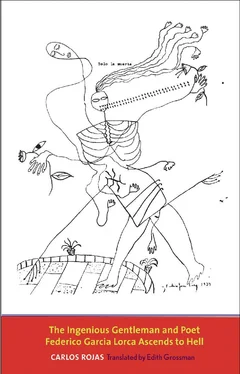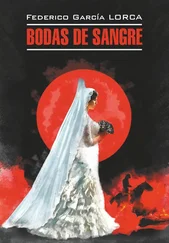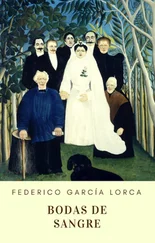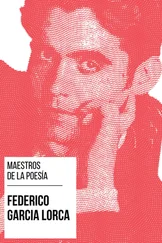The bolt slides and the same soldier who tried to hit me with his musket (“How do you dare, wretch? In my presence!”) opens the door. Startled at first, then immediately terrified, I recognize him by the childish dewiness that still fills his eyes.
“Move, you son of a bitch, the governor wants to question you!”
“The governor? … ”
“You’re lucky, you damn queer. The governor is as good as a saint. If I didn’t have orders from him to bring you to his office in one piece, I’d squash you like a scorpion, you fucking red, and we’d save the bullets we’ll shoot you with.”
“I want to see Pepe Rosales! Pepe told me yesterday I’d be released today! I want to see Pepe Rosales!”
“We shot Pepe Rosales at dawn for hiding you. You’ll see him soon in hell!”
I guess that he’s lying, not even stopping to think about it. I read it in his twisted smile and dewy eyes, while he takes me by the arm and pushes me toward the open door.
“No! Pepe’s alive! He was here yesterday and swore that today he’d take me to his house!”
I’m frightened by my own voice, the resonant tone of my reply. (“Sleep well tonight, my boy, and tomorrow we’ll all embrace you at home, and I’ll kiss your cheek if you promise not to pinch my ass.”) I believed him and last night I could sleep for the first time since my arrest. Dreamless sleep, as if I had been born blind or had just lost all my memories. Sleep indifferent to the screams of the tortured that previously had driven me to bang my head against the walls, like an enraged minotaur. Sleep, though it was on the floor with my arm for a pillow, since there wasn’t even a cot in the room they gave me for a cell.
“Yeah, right, whatever you say.” My shouts seem to have moderated his obtuse cruelty. Through my panic, and in a kind of revelation, I imagine a mountain village where this boy, now armed, endured taunts, stones, and gobs of spit. “We’ll play the call to arms, we’ll surrender our weapons to you, and you’ll leave here under a canopy, like the Virgin.”
“Pepe’s alive! Pepe can’t abandon me! He’ll be back right away to release me. You’ll all have to answer to him!”
“Yeah, fine, we’ll answer. Get moving, you fairy, or I’ll break your back with the butt of my gun. Look at those hips, like a little whore from the Albaicín.”
Again the corridor and the door to the governor’s private office. Again a beardless soldier standing guard beside it. Again the unexpected copy of shadow play that dampness drew on the wall. The man with the toothless smile speaks for a moment with the sentinel and rings a bell beneath the stain. Without waiting for a reply, he pushes me and lifts the latch.
“At your orders, Excellency. I have the detainee you asked for.”
Behind a carved desk covered by thick glass and an embossed leather desk set, stands a dark-haired, very thin man dressed in a military uniform, his eyes reddened and vague with lack of sleep. One of his long hands, very white and bony, indicates a wicker chair on the other side of the desk.
“Sit down, please, I’m Commander José Valdés.”
At a signal from him the boy withdraws and closes the door behind him. The civilian governor drops into an armchair upholstered in garnet-colored velvet. Beside a golden inkwell where two gold roosters attack each other with outstretched wings, he has a newspaper diminished by several folds, with a short article circled in red pencil.
“Read this, if you’d be so kind, and then tell me what you think of it.”
I read in silence though my lips tremble at each word, as if in that paper and precisely that article I was struggling to learn the letters. The paper is from Huelva and the report has my name, followed by a comment that closes the headline: “Now they’re killing one another.” It says that among the many corpses found every dawn on the streets of Madrid, mine has been discovered. “The disorder among the reds is so great they don’t even respect their own. For the author of Gypsy Ballads it was no help being Azaña’s coreligionist in politics, literature, and unresolved sexuality.”
“Well, what do you think of our press?” the governor insists.
As on the day of my arrest, in the Rosales family’s house, I divide into two beings. One thinks coldly about a poem of mine where an anonymous lament tells a story that has no names either. The one about a stranger who turns up dead, with a dagger in his chest, under a streetlamp shaken by the wind. (“Oh mother, how the lamp trembled!”) No one dares look into his eyes opened by death and the dawn. People are more shocked by his being abandoned, a stranger lost forever among them, than by the crime itself and the terrible certainty that someone in the village had become a murderer for dark, unknown reasons. Paradoxically, I had to come to the office of Commander José Valdés to realize that the germ of a tragedy I would never write lay in a thirteen-line poem. The impossibility of bringing to the theater a situation like that one, barely outlined but so rich in dramatic power, overflows with despair at my fate and leads the other man in me, the one I would call the man of flesh, to give a despicable reply:
“It could be true if the war had found me in Madrid. My heart was always with the military! I want to give everything to the Insurgency!”
“I expected another answer from you.” Valdés shrugs. “Or perhaps I no longer expect anything from anybody. Just to sleep and wake in a hundred years.”
“In a century?”
“Perhaps by then the Final Judgment will have come and we’ll all answer to God for ourselves.” More than indicating it, his gestures affirm it. “Do you think that people will remember our war in a century, with or without a Final Judgment?”
He is my judge and my executioner. I know with identical certainty that each moment confirms the impossibility that Pepe Rosa-les can save me. And yet something in his helplessness, in the insomnia that makes his eyes blaze and the sickly softness of his hands, prevents the man of flesh from telling him that from the ruins of war the foundations of a new Spain will be born, or some other cowardly stupidity. I hear the other man in me respond on his own:
“Probably not, because the dead bury the dead in the Gospels and besides, you’re the Christians in this battle.”
“We almost agree.” He picks up the newspaper and throws it in a wastebasket after crumpling it. “The dead will bury the dead, but their lies should survive them. Tomorrow, when they think about this war, which should have been only a coup, they won’t be surprised by our sacrifices or our crimes. Only our lies, your side’s lies and this Spain’s, will astonish them.”
“This is the fate we deserve,” I murmur unexpectedly.
“No doubt about it.” He agrees again with complete conviction. Then he shakes his head, half engulfed by sleep, as if these considerations consumed his last strength. “Did I tell you that this isn’t the first time we’ve seen each other?”
“I don’t think I remember ever having seen you … ”
“It’s true. You didn’t notice me, and you had no reason to. I not only saw you but observed you for hours.”
“Where, for God’s sake? What monstrous crime do you want to accuse me of now?” The panic of the creature of flesh who inhabits half of me becomes an equally burning curiosity. He moves from one passion to another as if crossing rooms without walls.
“No crime at all. As for the rest, it was logical you wouldn’t see me because I was nobody. Only a modest commander in the Corps of Military Inspectors, buried in Granada as a commissary general by the Republic because I was suspected of patriotism. Even these signs of identity were reduced to my uniform, without which it was as if I were naked or had never been born. And so, naked or without a body, that is, dressed in civilian clothes, I requested a leave and went to Madrid for a week to have an ulcer treated. In a café on the Gran Vía I came across you and recognized you immediately from newspaper photographs. I thought it strange to run into you there and never to have seen you in Granada, where I had lived since the year the Republic was established, as I’ve said. I understood immediately that only coincidence could bring us together, because in Granada we lived in very distant worlds in a very small city. Yours, which I suspected in part from gossip, was revealed to me by the two flashily dressed Gypsy boys escorting you that morning in the café on the Gran Vía. Should I add more? … ”
Читать дальше












